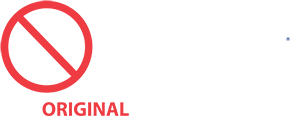
Leak Repair Services in Denver, CO
Reliable Leaky Drain Repairs in Your Area
Welcome to American Leak Detection of Denver! We are your local resource for all your leak repair needs in Denver, CO. Our experienced team can help you identify and address any type of leak, from a small drip to a major pipe burst.
We use the latest technology and methods to detect and repair leaks quickly and efficiently. Our team has extensive experience in all types of plumbing repair and provides tailored solutions for each leak issue.
Denver properties often face challenges unique to the area, such as shifting soils and frequent freeze-thaw cycles that strain plumbing systems. We stay current with local codes and repair standards, ensuring our leak repair services always meet the needs of Denver's homes and businesses. You benefit from our commitment to quality workmanship and deep knowledge of the area's infrastructure.
Types of Leaks We Fix
We provide services for:
- Slab Leak Detection and Repair
- Sewer Line Leak Detection and Repair
- Water Line Leak Detection and Repair
- Gas Line Leak Detection and Repair
- Pool Leak Detection and Repair
- Foundation Leak Detection and Repair
- And more!
Our detection process covers plumbing leaks in both residential and commercial settings throughout Denver. We frequently work with property owners who notice unexplained water around their home, dampness in the basement, or persistent sewer odors that may signal underground leaks. Our process allows us to quickly pinpoint the source of the trouble, even in complex buried systems. Every property is different, and our comprehensive inspection ensures we recommend leak repairs that are both effective and cause the least possible disruption. When you need sewer line leak repair in Denver, our knowledge of city codes helps keep projects on track from assessment to completion.
At American Leak Detection of Denver, we know timely service matters when it comes to leak repair. We offer fast, reliable service and work to get your leak resolved as quickly as possible. We offer competitive pricing and provide a free estimate before starting any work.
Identifying Common Causes of Plumbing Leaks in Denver
Plumbing leaks can create serious headaches for homeowners across Denver. These leaks often cause water damage and may bring hefty repair costs if not found and addressed quickly. Recognizing the common causes of leaks helps property owners avoid significant damage and know when to seek help.
For more information, call us at (303) 536-5889 or schedule a consultation online to get started!
Here are some common causes of plumbing leaks:
- Corroded pipes: Over time, pipes can corrode due to age or the material they're made from, creating holes where water can escape.
- High water pressure: High pressure may feel good in the shower but puts extra strain on your pipes, which can lead to leaks.
- Temperature changes: Denver's fluctuating weather causes pipes to expand and contract, which may eventually result in leaks.
- Clogged lines: A clog in your plumbing line creates excess pressure, leading to leaks or even burst pipes.
- Poorly installed pipes: Pipes that are installed incorrectly can develop leaks much more easily.
Frozen pipes are another risk during Denver's cold winters. Sudden temperature drops can cause water inside pipes to freeze, expanding and cracking the pipes. Our team pays close attention to areas prone to freezing, like uninsulated basements or crawl spaces. Newer homes and older buildings often require different preventive approaches. By understanding these climate-related risks, we recommend repairs that help protect your plumbing from future leaks.
Don't let a small leak become a big problem. Reach out today for professional plumbing leak repair in Denver.
Recognizing Signs of a Slab Leak in Your Home
As a homeowner in Denver, watch for certain signs that may indicate a slab leak. These leaks are especially concerning in colder climates like Denver because they can cause water damage, foundation problems, and higher utility bills.
Here are the common signs to watch out for:
- Increase in water bills: A sudden, unexplained rise in your water bill could mean water is leaking from a pipe beneath your home's foundation.
- Warm spots on the floor: Denver's cold winters make it easier to notice warm patches on floors, especially in areas without heating, which may signal a hot water line leak under the slab.
- Damp or wet flooring: If you see unexplained moist spots or pools of water on your floors, carpets, or rugs—especially in lower areas—it may mean water is seeping from the foundation.
- Mold growth: Slab leaks make conditions right for mold and mildew, leading to musty odors and visible growth inside your home.
- Decreased water pressure: A slab leak may disrupt water flow, causing noticeably lower pressure in your faucets and fixtures.
- Cracks in walls or flooring: Watch for new cracks on your walls or floors. Slab leaks can shift your foundation and lead to visible structural damage.
Promptly addressing slab leaks can help you avoid expensive repairs down the road. Denver’s clay soils tend to swell and shrink with changes in moisture, which strains underground pipes. Acting early can help you steer clear of major foundation work. Consulting experienced leak repair professionals is a solid first step if you notice these warning signs.
If you observe any of these symptoms, act soon. Bringing in a professional for slab leak detection and repair in Denver can reduce further damage, protect your foundation, and help manage expenses. Quick action helps keep your home safe and reduces stress in the long run.
The Leak Repair Process: What to Expect
When you contact us for plumbing or sewer line leak repair service in Denver, our team uses a streamlined process for accuracy and minimal disruption. We start with a targeted assessment using acoustic leak detection and thermal imaging tools that locate leaks without opening walls or slabs. This non-invasive approach saves time and protects your property from unnecessary damage.
After we find the source, we explain your repair options. Our technicians make every step clear, including requirements specific to Denver like city permits for sewer line repairs or the best methods for safe excavation. You'll receive open communication about every phase, from simple pipe repairs to more complex sewer line restoration projects.
Denver follows strict local standards for plumbing and sewer repairs, so we complete every repair to comply with city codes. Following these protocols and communicating clearly brings peace of mind through each project. Our efficient approach means the majority of leak repairs can be completed with minimal disruption to your routine.
Understanding Denver’s Plumbing & Sewer Regulations
Denver enforces detailed rules for plumbing and sewer leak repair to protect homeowners and the public water supply. Property owners often must secure permits from the city before beginning sewer line repair, particularly when work involves excavation or connects with municipal utilities. These regulations help keep Denver’s water infrastructure safe and reliable.
We monitor local plumbing standards, so you never have to worry about missing essential steps. Our team keeps you informed about projects that require permits or city inspections and works to schedule repairs around these requirements. This level of service keeps you from running into common problems and helps keep your project moving forward, even when local rules change block by block.
Denver’s focus on water conservation and strict wastewater standards shape the materials and repair techniques allowed during leak repair. When you choose a leak repair service in Denver that understands these regulations, you cut the risk of delays, fines, or repeat repairs. Our knowledge helps ensure a smooth, code-compliant process at every stage.
Your Trusted Plumbing Leak Repair Team in Denver
When it comes to plumbing repair, you want work done right the first time. Call on professionals focused on leak detection. Our licensed master plumbers in Denver assess and address plumbing issues quickly and accurately, no matter how complex.
We avoid unnecessary demolition of your foundation or slab to correct a leak. Instead, we use our skills with advanced tools to solve your leak in a non-invasive manner. If you're facing a persistent leak, trust our team to make the process stress-free and respectful toward your property.
Our team knows Denver's permitting requirements for plumbing and sewer repairs, so we always operate within local regulations. We stay connected to community updates, delivering leak repair solutions for all types of properties—whether you own a bungalow, duplex, or a new multi-family building. Clear, respectful communication is as important to us as technical skill, and we keep you informed through every step of the repair process.
FAQs
How quickly can plumbing or sewer leaks be repaired in Denver?
Many plumbing and sewer leaks are fixed within a day, but the time required depends on the damage and whether city permits are needed. In Denver, repairs involving city sewer lines or complex permitting may take longer. Our team communicates timelines clearly throughout your project.
Will I need a permit for leak repairs in Denver?
Denver often requires permits for sewer line leak repair or plumbing work that connects to city utilities. We help clients understand which repairs need permits and coordinate requirements with the city to keep your repairs compliant and on schedule.
What should I do if I notice signs of a leak during the winter?
If you see signs of a leak in winter, take action quickly because freezing temperatures can rapidly worsen plumbing problems. Shut off water to the affected area if it’s safe to do so, then contact a professional familiar with Denver conditions for prompt repair.
If you leak into your home or business, don’t hesitate to use our contact form or call us at (303) 536-5889. We look forward to helping you get your leak fixed quickly and affordably.

Rankings in the Industry!
Learn why American Leak Detection™ is considered to be
THE leader in non-invasive leak detection.

